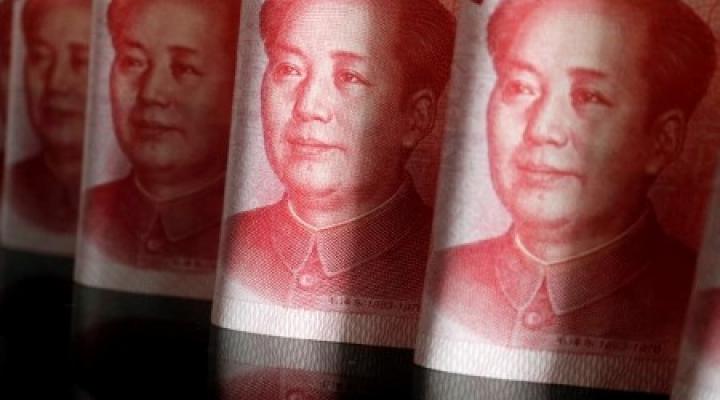China's major state-owned banks were selling U.S. dollars in the onshore spot foreign exchange market for a second day on Wednesday to support the yuan currency, three sources with knowledge of the matter said.
The yuan has come under renewed depreciation pressure after rating agency Moody's on Tuesday cut its outlook on China's government credit ratings to negative from stable, citing expectations of slower economic growth and property market risks.
State banks were busy buying the yuan in currency markets on Tuesday to prevent it from weakening too much, and their dollar selling became very forceful after the Moody's statement, Reuters reported.
State banks stepped in again in early trading on Wednesday, but the sources said the dollar selling was rather mild, as the yuan weakness had prompted some domestic exporters to settle their foreign exchange receipts in morning deals, which helped the yuan recover.
Chinese exporters usually convert their FX receipts into the yuan towards year-end for various payments including year-end bonus handouts. And the seasonality usually supports the Chinese currency.
Despite the state banks' actions, the yuan still slipped on Wednesday.
Spot yuan opened at 7.1570 per dollar and was changing hands at 7.1568 as of 0300 GMT, 88 pips weaker than the previous late session close.
Its offshore counterpart was trading at 7.1641 per dollar around 0300 GMT.
With China's economy sputtering and the U.S. dollar surging until recently, the yuan has had a volatile year, having weakened 6.14% to the dollar at one point before giving back much of the losses on recent views that U.S. interest rates have peaked.
The yuan strengthened 2.55% in November, its best month this year, but it is still down about 3.6% year-to-date.
State banks in China usually trade on behalf of the country's central bank in the currency market, but they could also trade on their own behalf.










